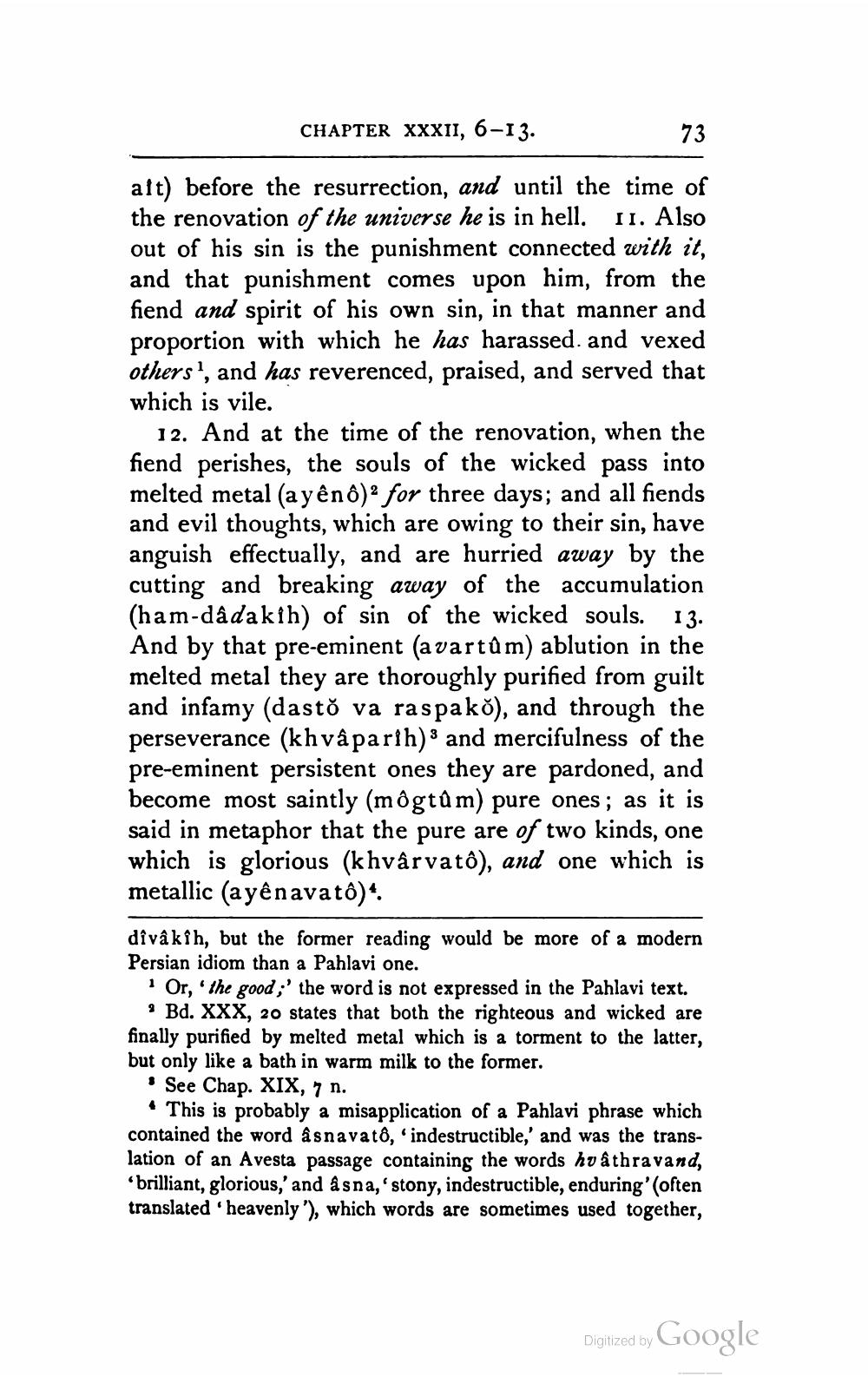________________
CHAPTER XXXII, 6-13.
73
att) before the resurrection, and until the time of the renovation of the universe he is in hell. II. Also out of his sin is the punishment connected with it, and that punishment comes upon him, from the fiend and spirit of his own sin, in that manner and proportion with which he has harassed. and vexed others', and has reverenced, praised, and served that which is vile.
12. And at the time of the renovation, when the fiend perishes, the souls of the wicked pass into melted metal (ayênô)2 for three days; and all fiends and evil thoughts, which are owing to their sin, have anguish effectually, and are hurried away by the cutting and breaking away of the accumulation (ham-dadakih) of sin of the wicked souls. 13. And by that pre-eminent (avartûm) ablution in the melted metal they are thoroughly purified from guilt and infamy (dastò va raspakó), and through the perseverance (khvâparih) 3 and mercifulness of the pre-eminent persistent ones they are pardoned, and become most saintly (môgtům) pure ones; as it is said in metaphor that the pure are of two kinds, one which is glorious (khvârvató), and one which is metallic (a yênavato)*:
dîvâkih, but the former reading would be more of a modern Persian idiom than a Pahlavi one.
i Or, the good;' the word is not expressed in the Pahlavi text.
· Bd. XXX, 20 states that both the righteous and wicked are finally purified by melted metal which is a torment to the latter, but only like a bath in warm milk to the former.
• See Chap. XIX, 7 n.
• This is probably a misapplication of a Pahlavi phrase which contained the word â snavato, indestructible,' and was the translation of an Avesta passage containing the words hv athravand, 'brilliant, glorious,' and å sna, stony, indestructible, enduring' (often translated 'heavenly'), which words are sometimes used together,
Digitized by Google




